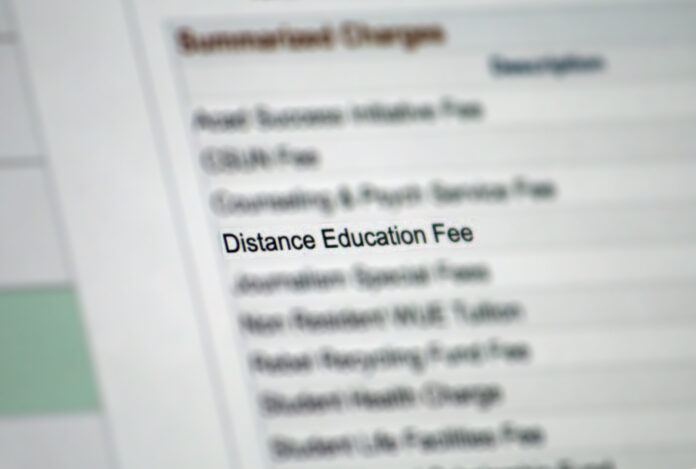
UNLV has undergone several changes in the last year, transitioning from full in-person courses to a completely remote learning environment in a matter of weeks. Fast forward to today, campus life returns to 60 percent in-person classes and 40 percent remote, a stark contrast to last semester.
In Spring 2021, less than 25 percent of classes returned to campus while others remained online as positive cases steadily rose. Now, with the help of the vaccine, there has not been a drastic spike in cases, prompting colleges and universities to increase the amount of in-person classes.
However, although a majority of classes will return to in-person instruction, some courses are only available as a web-based option. This subjects students to a long distance fee on top of the existing price of the class. Many students may suffer financial and emotional harm as a result of this extra charge.
The long distance fee equates to $34 per credit, which isn’t too extreme when you only have one web-based course. When taking into consideration the other fees, this isn’t a price to be too concerned about.
However, add that $34-per-credit charge to about five or so classes that already cost hundreds of dollars each, on top of other charges, and the amount significantly exceeds the average tuition amount. This, in turn, can cause even more stress for students who have no choice but to remain online due to the pandemic, especially as new variant strains emerge.
The COVID-19 pandemic has brought several pre-existing medical and health conditions to light, causing students both on and off campus to constantly exercise caution as their lives, or the lives of people they love, are at risk. Including an extra charge for students not only stresses them out financially, but also stresses them emotionally as they must worry about loved ones contracting the virus as well.
“A majority of students didn’t ask for remote classes, and if given the chance, they would probably pick in-person classes,” recently graduated UNLV student Larissa Mcneill said. “The pandemic has put a lot of strain on people financially, and to ask students to pay an extra fee, just adds to that strain.”
In a 2020 study conducted by OneClass, researchers found that over 56 percent of students could no longer afford tuition, and roughly about 7 percent were looking to drop out or move to a cheaper college. Participants in the study worked an average of two jobs, yet they struggled to pay their tuition, causing elevated levels of stress and anxiety.
These fees may seem small, but in the long run can drastically pose a negative threat on students’ mental health, adding even more onto their already busy plates.
This past year has been nothing but full of hardships and neverending stressors as the pandemic continues to make resurgences. The online fees for classes that are only offered virtually will put an even greater strain on students, potentially causing many to lean towards a cheaper, less stressful option in the future.
